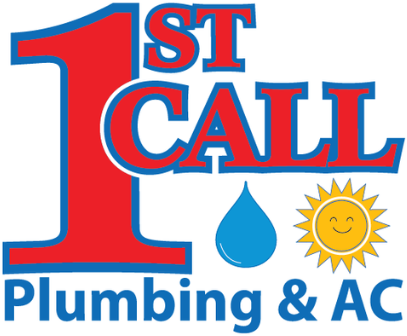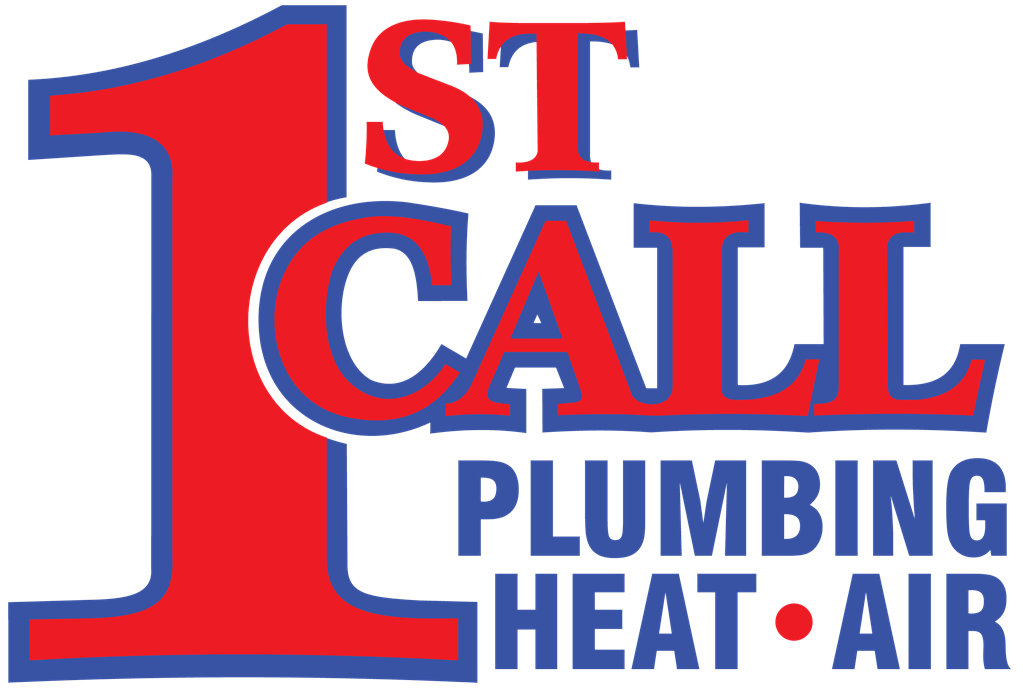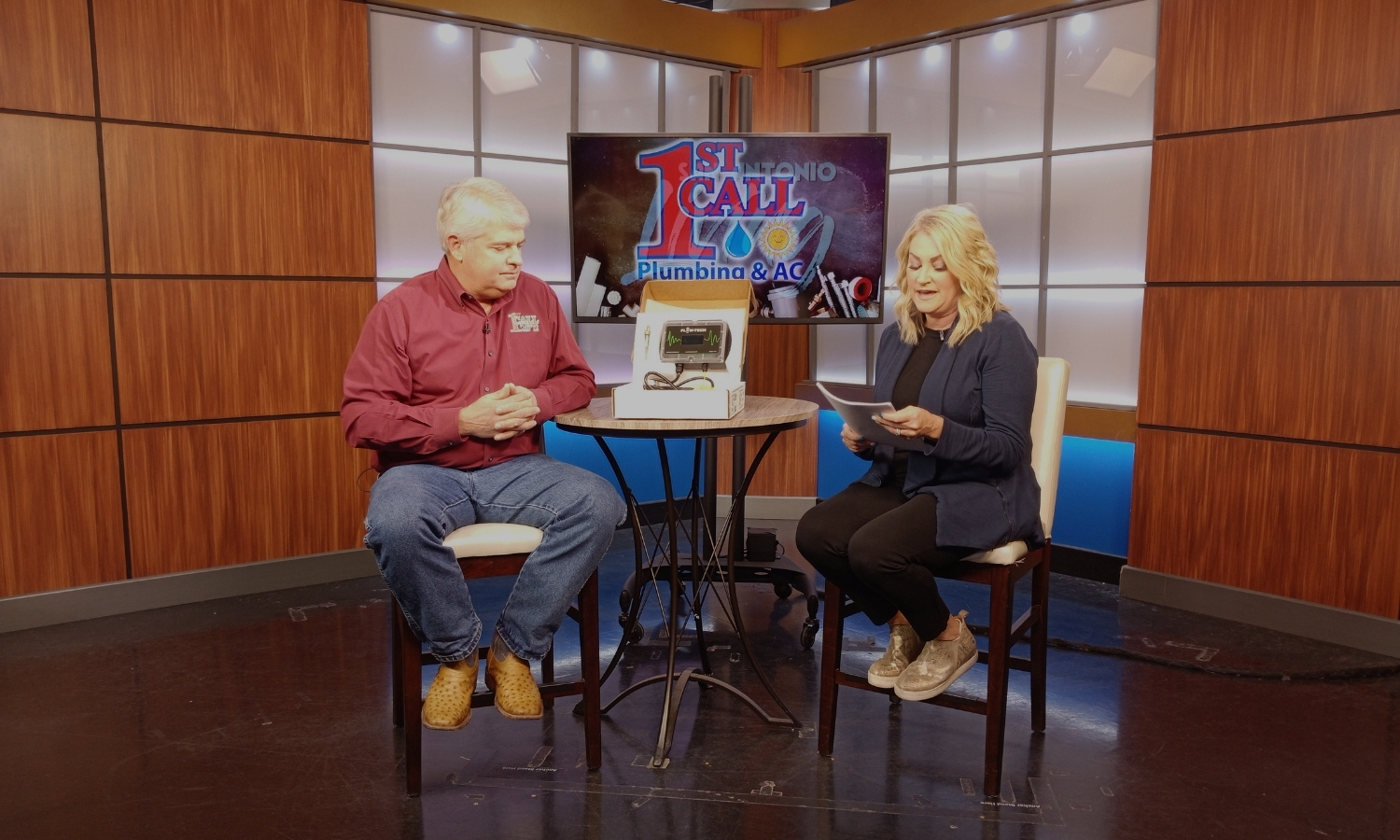What is a Water Softener?
How does a Water Softener Work?
What are the options to control Hard Water?
How much does a Water Softener cost?
Hard water is a common issue for Homeowners in San Antonio and the surrounding areas, leading to problems like scale buildup, expensive appliance damage, inefficient soap usage, and hair and skin damage.
1st Call Plumbing & AC offers multiple options to treat hard water, from traditional water softener systems using the latest technology, to affordable easy-to-install maintenance-free alternatives and reverse osmosis systems that help
homeowners improve their water quality without the hassle.
Table of Contents
-
- What Is Hard Water and What Are The Common Effects?
- Recognizing the Signs of Hard Water
- How Does Hard Water Affect Your Home?
- 3 Options To Control Hard Water In Your Home
- Traditional Water Softeners
- Reverse Osmosis Systems
- Flow-Tech – Water Softener Alternative
- Cost of Water Softening options in San Antonio
- Why Choose 1st Call Plumbing & AC to solve your hard water problems?
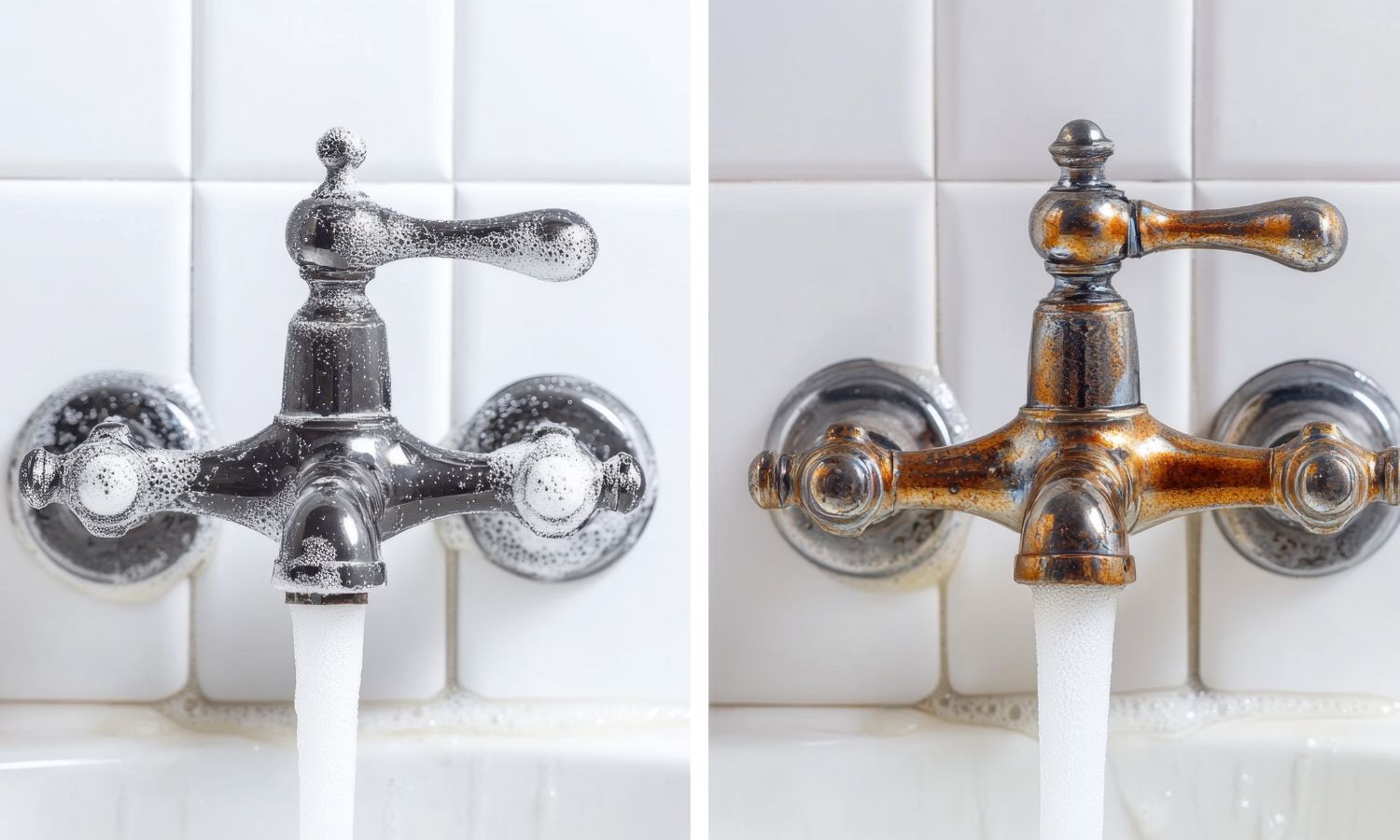
What Is Hard Water and What Are The Common Effects?
Hard water is water that contains high levels of dissolved minerals, primarily calcium and magnesium. These minerals are naturally present in groundwater, picking up deposits from rocks and soil as water moves through the earth. While hard water is safe to drink, it can create numerous household challenges.
Understanding Water Hardness
Water hardness is measured in grains per gallon (GPG) or parts per million (PPM). Here’s how water hardness levels are categorized:
- Soft Water: 0-3.5 GPG
- Moderately Hard Water: 3.5-7.0 GPG
- Hard Water: 7.0-10.5 GPG
- Very Hard Water: 10.5+ GPG
San Antonio and the surrounding areas are known for having some of the hardest water in Texas, with an average hardness level of 15-20 grains per gallon (GPG). This makes water treatment solutions essential for homeowners looking to maintain their plumbing and appliances.
Recognizing Signs of Hard Water
- Scale Buildup – When hard water is heated, minerals crystallize and form deposits inside pipes, appliances, and fixtures, leading to clogging and inefficiency.
- Appliance Wear & Tear – Water heaters, dishwashers, and washing machines accumulate scale, forcing them to work harder and wear out faster.
- Poor Soap Performance – Hard water reduces soap’s ability to lather, meaning more detergent is needed for laundry, dishwashing, and bathing.
- Skin and Hair Problems – Hard water leaves behind residue, making skin feel dry and hair look dull and lifeless.
- Stains on Dishes and Laundry – Water spots on dishes and stiff, scratchy clothing after washing are clear signs of hard water.
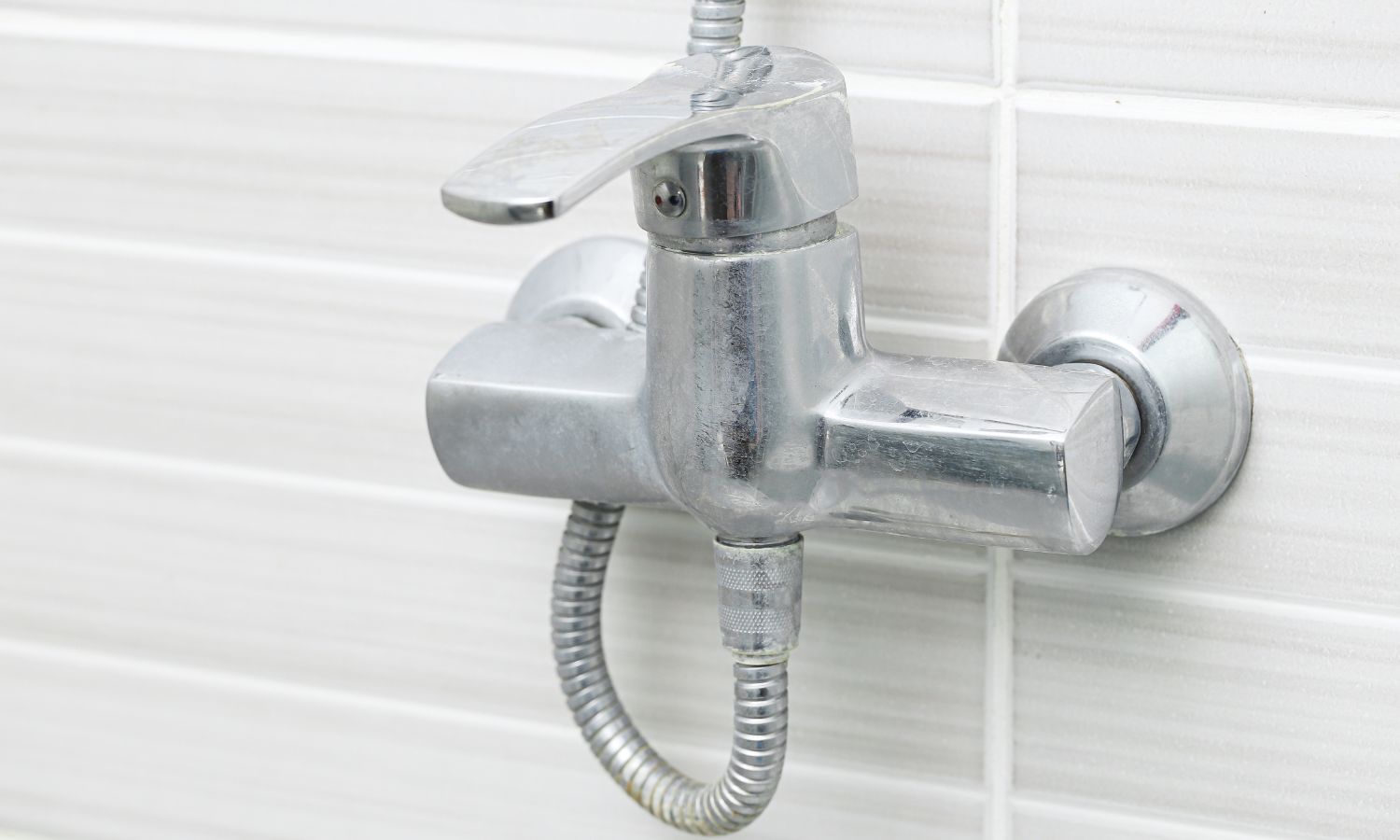
How Does Hard Water Affect Your Home?
Plumbing Issues
Hard water leads to mineral buildup inside pipes, restricting water flow and increasing pressure. Over time, this can cause pipe corrosion, leaks, and expensive repairs. Faucets and shower heads can also become clogged with scale deposits, reducing efficiency and requiring frequent maintenance.
Appliance Damage
Hard water negatively impacts home appliances such as dishwashers, washing machines, and water heaters. Scale buildup inside these appliances forces them to work harder, reducing energy efficiency and leading to premature failure. Water heaters, in particular, experience a reduction in heating efficiency due to scale accumulation on heating elements.
Poor Cleaning Performance
Hard water affects the effectiveness of soaps and detergents, making it difficult to achieve a thorough clean. Soap reacts with minerals in hard water, forming a sticky residue known as soap scum. This residue can accumulate on bathtubs, sinks, and shower doors, making them harder to clean. Laundry washed in hard water often feels rough and stiff due to detergent not rinsing out completely.
Dry Skin & Hair
The minerals in hard water strip the skin and hair of natural oils, leading to dryness, irritation, and itchiness. Many people with hard water experience dandruff or dull, brittle hair. Using more soap, shampoo, and conditioner may help temporarily, but the underlying issue persists without proper water treatment.
3 Options To Control Hard Water In Your Home
1st Call Plumbing & AC offers multiple solutions so you can select the best option for your home.
- Traditional Water Softeners
- Reverse Osmosis Systems
- Flow-Tech Descaler – Water Softener Alternative
1. Traditional Water Softeners
- How It Works: A combination of carbon filtration and traditional water softening to remove both hard water minerals and chemical contaminants.
- Benefits:
- Improves overall water quality while softening water.
- Reduces chlorine, sediment, and heavy metals.
- Best for homeowners who want comprehensive water treatment.
2. Reverse Osmosis Systems
- How It Works: A filtration system installed at a single water source, typically in the kitchen, to remove contaminants and improve drinking water quality.
- Benefits:
- Provides pure, great-tasting water.
- Removes impurities, including lead and chlorine.
- Affordable and easy to maintain.
- It may be the best option for homeowners looking for a drinking water solution rather than whole-house coverage.
3. Flow-Tech Descaler
- How It Works: Flow-Tech utilizes a unique induction method that treats all the water in your home continuously. By emitting a low-frequency electromagnetic signal, it alters the charge of dissolved minerals like calcium and magnesium, preventing them from forming scale deposits on pipes and appliances.
- Benefits:
- Maintenance-Free: No need for salt, filters, or regular upkeep.
- Eco-Friendly: Operates without chemicals, conserving water and reducing environmental impact.
- Reduces Buildup: existing scale buildup over time.
- Works with both city and well water.
- Preserves Beneficial Minerals: Retains essential minerals in your water without the negative effects of hard water.
- It is ideal for homeowners looking for a low-cost, long-term solution to hard water issues.
- For more information or to schedule an installation, contact 1st Call Plumbing & AC at (210) 446-0200.
Cost of Water Softening options in San Antonio
How much does a Traditional Water Softener cost in San Antonio?
Traditional water softeners in the San Antonio area can range from $1,500 to $5,500 including installation, plus the cost of ongoing maintenance and salt refills. Houses not plumbed for a water softener can add additional labor to the cost.
How much does a Reverse Osmosis System cost in San Antonio?
Reverse Osmosis Systems in the San Antonio area can range from $1,000 to $4,800 including installation.
How much does a Flow-Tech, Water Softener Alternative cost in San Antonio?
Flow-Tech I Water Softener Alternatives in the San Antonio area can range from $1500 to $2500 including installation.
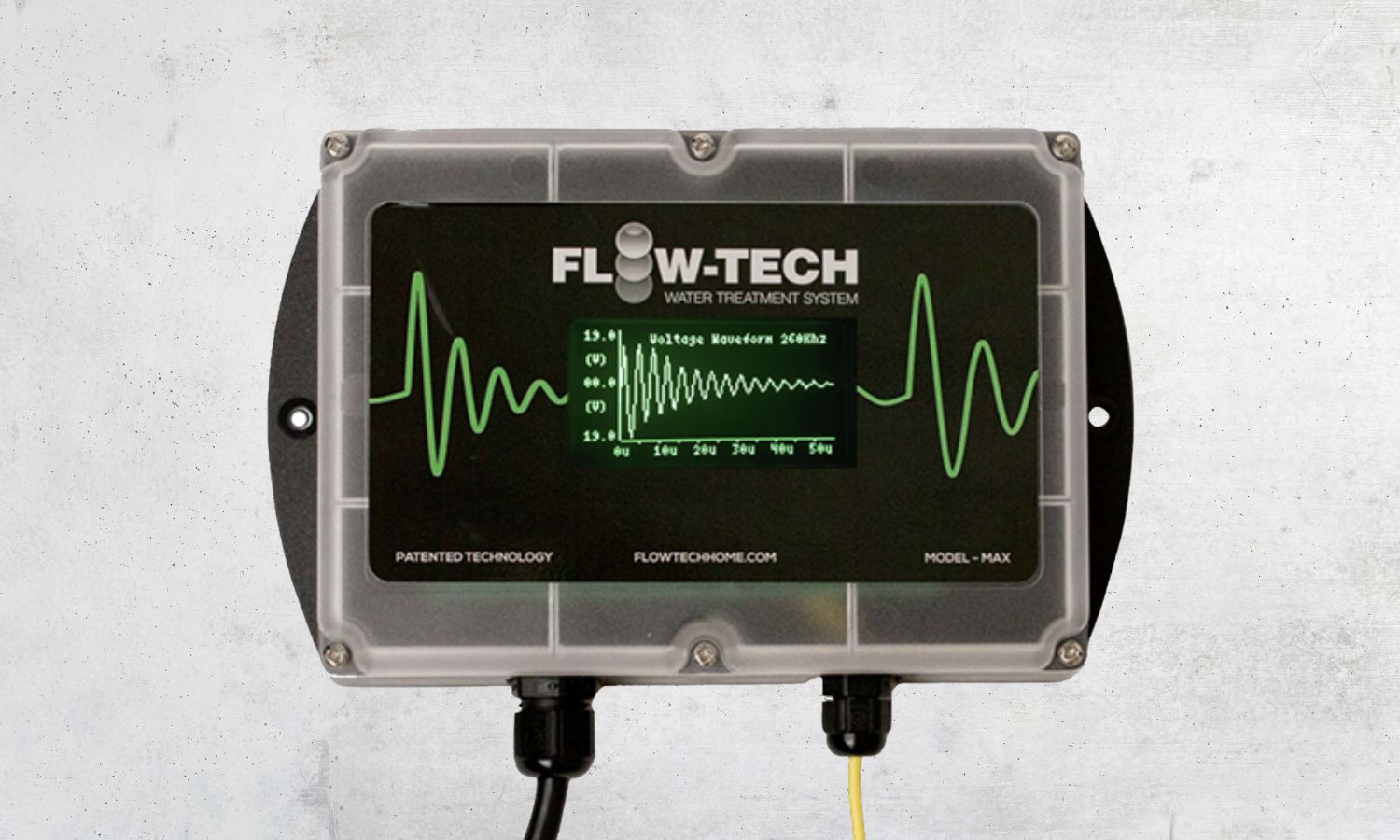
Conclusion
Hard water is a menace and can lead to problems like scale buildup, expensive appliance damage, inefficient soap usage, skin dryness, and hair damage.
1st Call Plumbing & AC offers multiple solutions so you can select the best option for your home to help you save money and improve your water quality without the hassle.
So above other plumbing companies… Why Should You Choose 1st Call Plumbing & AC?
✅ Eco-friendly options that reduce waste and save energy.
✅ Personalized recommendations based on your home’s water needs.
✅ Affordable, maintenance-free solutions for hard water problems.
1st Call Plumbing & AC has the perfect solution for you. Call us today at (210) 446-0200 or click here to schedule a consultation!
